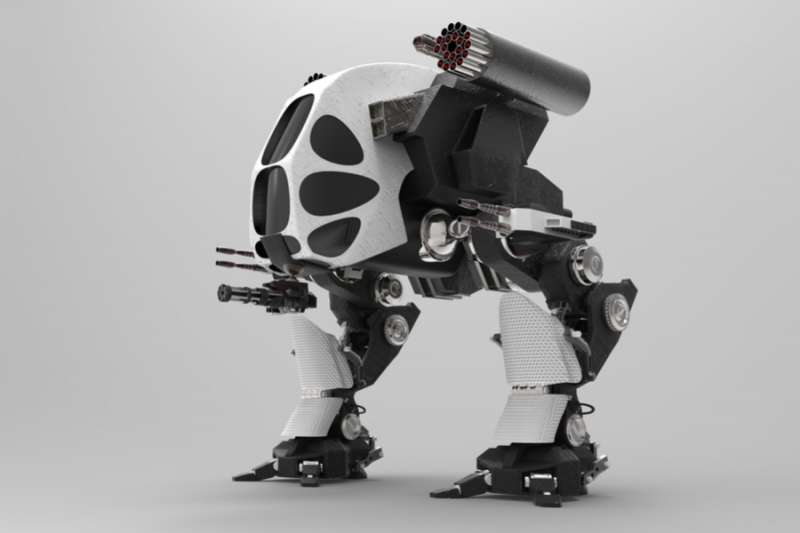A Vatican representative to the United Nations called on the international community to ban killer robots — known as Lethal Autonomous Weapons Systems (LAWS) — in a speech in Geneva last week.
“In order to prevent an arms race and the increase of inequalities and instability, it is an imperative duty to act promptly: now is the time to prevent LAWS from becoming the reality of tomorrow’s warfare,” said Archbishop Ivan Jurkovic, permanent observer of the Holy See to the United Nations.
The archbishop spoke Nov. 22 at the 2018 Meeting of High Contracting Parties to the Convention on Prohibitions or Restrictions on the Use of Certain Conventional Weapons Which May Be Deemed to Be Excessively Injurious or to Have Indiscriminate Effects (CCW).
He said the parties to the convention should “make a courageous and enlightened decision of prohibiting LAWS like it did in the past concerning other types of weapons.”
“The increasingly active participation and interaction among States, civil society and the scientific community clearly indicates the urgency and far-reaching implications of LAWS,” he said, stressing the need for precaution and “a responsible attitude of prevention” as “the only options that will ensure a sound and lasting outcome.”
This is not the first time that a Holy See representative has raised concerns about killer robots at the United Nations. The question of autonomous lethal weapons has been on the CCW agenda for five years, with the Holy See questioning whether such weapons systems could irreversibly alter the nature of warfare, create detachment from human agency and put in question the humanity of societies.
In his Nov. 22 statement, Archbishop Jurkovic also warned against incendiary weapons, saying that their use “causes excruciatingly painful burns leading to long-term physical and psychological injuries or death,” as well as explosive weapons.
“The tragic experience of conflicts all over the world shows that the use of explosive weapons with devastating effects in populated areas has a dramatic long-term humanitarian impact,” he said. “It creates deadly injuries and permanent impairments, often leaving behind deadly explosive remnants of war which can kill or maim civilians long after the end of hostilities.”
The archbishop also noted that “millions of refugees and displaced persons are often fleeing violence and desolation caused by the use of ever more powerful conventional weapons in urban settings.”
What are regarded as “conventional weapons” are becoming “weapons of mass displacement,” able to destroy cities, schools, hospitals and other crucial infrastructure, he said.
In addressing excessively damaging weapons, Archbishop Jurkovic said, the Holy See encourages the international community “to continue on the path it has taken for the reduction of human suffering and to mitigate the negative consequences of hostilities.”
“Every step in this direction contributes to increasing awareness that the cruelty of conflicts must be done away with in order to resolve tensions by dialogue and negotiation, and also by ensuring that international law is respected.”

